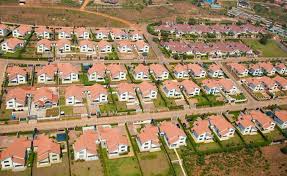Rwanda is taking bold steps to transform its urban landscape with a new set of policies and digital tools aimed at making its cities smarter, more inclusive, and easier to build in. Speaking with Repoters, Rwanda’s Minister of Infrastructure, Dr. Jimmy Gasore, outlined key reforms the government is implementing to support better urban planning and improve the quality of life for Rwandans.
At the heart of the government’s efforts is a revised urbanization policy, which sets out clear strategies for guiding the country’s rapid urban growth. Rwanda, like many African nations, is witnessing increasing rural-to-urban migration. More people are moving to cities in search of jobs, education, and better living conditions. The government says the new policy aims to ensure that this growth is managed in a way that benefits everyone—not just the wealthy or city elites.
“We are creating urban spaces that are well-planned, resilient, and accessible to all income levels,” said Minister Gasore. “This is not just about infrastructure; it is about social equity, smart planning, and sustainability.”
One of the major breakthroughs in the country’s new urban push is the launch of a digital platform for building permit approvals. In the past, getting a building permit in Rwanda was a long and bureaucratic process, which discouraged private developers and delayed construction projects. With the new online system, developers, architects, and individuals can now apply for permits, upload their building plans, and track the approval process—all from a computer or mobile device.
The Minister explained that the digital platform is already reducing processing time and promoting transparency. “We are removing unnecessary red tape. The process is now faster, more predictable, and user-friendly,” he said.
Beyond smart governance, Rwanda is also addressing one of the continent’s most pressing urban issues—affordable housing. Rising demand for homes in urban areas has made housing unaffordable for many middle- and low-income earners across Africa. Rwanda is determined not to let its people get priced out of the cities they help to build.
Minister Gasore said the government has put in place incentives to encourage investment in affordable housing. These include tax incentives, access to serviced land, and partnerships with both local and foreign developers. There are also efforts to reduce construction costs by promoting the use of local building materials and new construction technologies.
“We want a city where teachers, civil servants, and ordinary businesspeople can afford to live, not just the rich,” he noted. “Affordable housing is a top priority for us.”
The urban reforms are in line with Rwanda’s Vision 2050, which aims to make the country a high-income economy through smart development, green growth, and digital transformation. Already, Kigali—the capital city—is being recognized across the continent for its clean streets, green public spaces, and organized urban layout. But the government wants to ensure that secondary cities like Musanze, Huye, and Rubavu also benefit from the new urban push.
To make that happen, Rwanda is strengthening urban governance at the local level, providing tools and training to city managers, planners, and municipal leaders. The revised urban policy emphasizes citizen participation, environmental sustainability, and disaster risk reduction as part of a holistic approach to modern city-building.
Infrastructure experts say Rwanda’s model could be replicated in other African countries, where rapid urban growth is often poorly managed. By focusing on planning, digital innovation, and inclusivity, Rwanda is setting a new example for the continent.
While the road ahead is still long, Rwanda’s strategy reflects a commitment to thoughtful growth rather than haphazard development. The reforms are expected to support job creation, reduce slum expansion, and improve living standards for urban dwellers in the years ahead.
